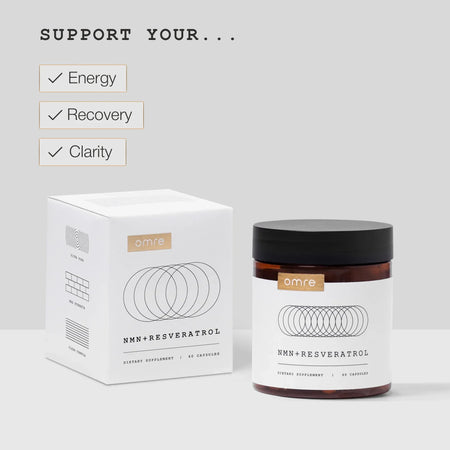Resveratrol is a naturally occurring compound found in various plants, especially in red grapes, berries, and peanuts. Known for its potential health benefits, including anti-aging properties and heart health support, many people are curious about how to effectively incorporate resveratrol into their daily routine. In this article, we will explore the optimal ways to use resveratrol, its benefits, and how to choose the right form for your needs.
How to use resveratrol?
To use resveratrol effectively, consider the following methods: take it as a dietary supplement in capsule or powder form, consume foods rich in resveratrol like red wine and dark chocolate, or incorporate resveratrol-infused products into your skincare routine. It’s essential to follow the recommended dosage on supplement labels and consult with a healthcare professional before starting any new supplement regimen.
Understanding Resveratrol
Resveratrol is a polyphenol that acts as an antioxidant. It helps combat oxidative stress in the body, which is a contributor to various chronic diseases and aging. The compound is most commonly associated with red wine, which has led to the popular belief that moderate consumption can be beneficial for heart health. However, resveratrol can also be found in other food sources such as grapes, blueberries, raspberries, and even dark chocolate.
Forms of Resveratrol
Resveratrol is available in several forms, each with its own benefits:
- Dietary Supplements: These are often available in capsule or powdered form, offering concentrated doses of resveratrol.
- Food Sources: Consuming foods that naturally contain resveratrol can be an enjoyable way to integrate it into your diet.
- Topical Applications: Some skincare products include resveratrol for its potential anti-aging benefits.
How to Take Resveratrol Supplements
If you choose to take resveratrol as a supplement, here are some guidelines:
- Dosage: The typical dosage ranges from 100 to 500 mg per day, but it's crucial to follow the manufacturer's recommendations or consult with a healthcare provider.
- Timing: Taking resveratrol with meals may enhance its absorption. Consider splitting the dosage between breakfast and dinner.
- Consistency: For optimal results, take resveratrol daily as part of your routine.
Incorporating Foods Rich in Resveratrol
Incorporating foods rich in resveratrol into your diet can be delicious and beneficial:
- Red Wine: A glass of red wine can provide a source of resveratrol, but moderation is key.
- Berries: Blueberries, blackberries, and raspberries are great snack options that also offer antioxidants.
- Peanuts and Pistachios: Snacking on these nuts can also contribute to your daily intake of resveratrol.
- Dark Chocolate: Opt for dark chocolate with a high cocoa content for both flavor and health benefits.
Resveratrol in Skincare
For those interested in beauty products, resveratrol is gaining popularity in the skincare industry:
- Anti-Aging Benefits: Resveratrol may help reduce signs of aging, such as fine lines and wrinkles, by combating oxidative stress.
- Moisturizers and Serums: Look for products that list resveratrol among the ingredients for enhanced skin protection.
- Patch Test: Always conduct a patch test before using new skincare products to avoid adverse reactions.
Potential Benefits of Resveratrol
Research suggests that resveratrol may offer various health benefits:
- Heart Health: Resveratrol may help lower blood pressure and reduce cholesterol levels, contributing to cardiovascular health.
- Anti-Inflammatory Properties: It may help reduce inflammation in the body, which is linked to numerous chronic diseases.
- Antioxidant Effects: By neutralizing free radicals, resveratrol can protect cells from damage.
- Metabolic Health: Some studies suggest that resveratrol may improve insulin sensitivity and support weight management.
Possible Side Effects and Considerations
While resveratrol is generally considered safe, there are some potential side effects and considerations:
- Allergic Reactions: Some individuals may experience allergies or sensitivities to resveratrol.
- Drug Interactions: Resveratrol may interact with certain medications, particularly blood thinners and anti-inflammatory drugs.
- Pregnancy and Nursing: Pregnant or nursing women should consult their healthcare provider before using resveratrol.
Conclusion
Using resveratrol can be beneficial for your health when incorporated correctly into your diet or skincare routine. Whether through supplements, food sources, or topical applications, resveratrol offers potential anti-aging and health benefits. Always remember to consult with a healthcare professional before starting any new supplement, and enjoy the delicious foods that naturally contain this powerful compound.
Stay Sharp, Stay Energized, Stay Ahead
Aging doesn’t have to slow you down. NMN + Resveratrol is your key to sustained energy, sharper focus, and long-term vitality. Whether you're a high performer pushing boundaries, a biohacker optimizing every aspect of life, or a parent looking to keep up with the demands of daily life, this powerful combination fuels your body at the cellular level.
Backed by science and trusted by those who refuse to settle for average aging, NMN + Resveratrol helps you stay ahead—today, tomorrow, and for years to come.
Experience the benefits for yourself. Start your journey to better aging now!
Try NMN + Resveratrol Today!
NMN + RESVERATROL
Cellular NAD+ booster with ultra‑pure NMN and Resveratrol, at research‑backed doses.*
Read more:


